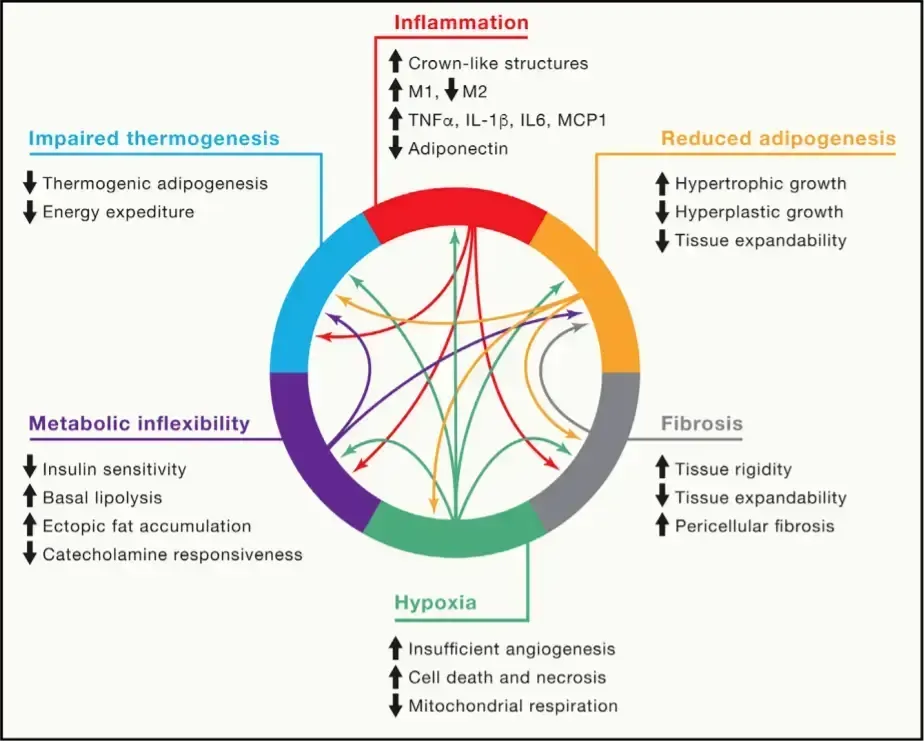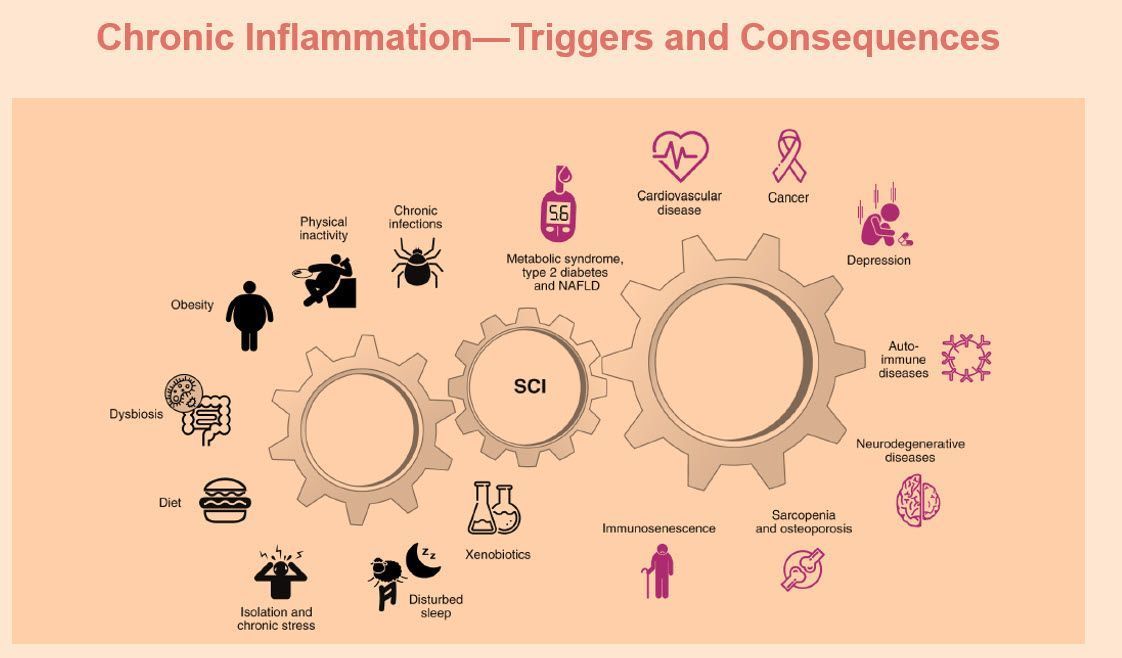New Research Finds That With Obesity, the Problem Isn’t an Excess of Fat but Its Loss of Function

The hallmarks of adipose tissue dysfunction. Credit: Sakers et al./Cel
“The central role of adipose tissue dysfunction in disease and the incredible plasticity of fat tissue supports the promise of modulating fat tissue phenotypes for therapeutic purposes,” write the authors, led by Claudio J. Villanueva from the College of Life Sciences/David Geffen School of Medicine and Patrick Seale from Perelman School of Medicine at the University of Pennsylvania. “Many questions and opportunities for future discovery remain, which will yield new insights into adipose tissue biology and hopefully lead to improved therapies for human disease.”
Reference: “Adipose tissue plasticity in health and disease” by Alexander Sakers, Mirian Krystel De Siqueira, Patrick Seale and Claudio J. Villanueva, 3 February 2022, Cell.
DOI: 10.1016/j.cell.2021.12.016
Research reported in this publication was supported by NIDDK at the National Institutes of Health, the UCLA Life Sciences Fund, and UCLA Graduate Council Diversity Fellowship. The authors declare no competing interests.







